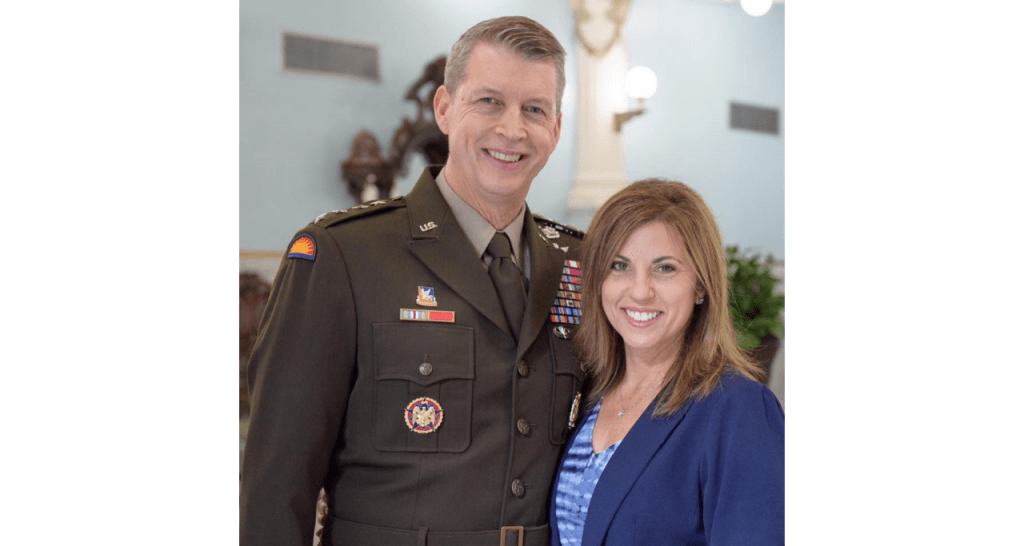The National Guard hasn’t been this busy since World War II. At the end of 2020, soldiers and airmen logged over 8.4 million duty days, according to the National Guard Bureau. It’s been a busy year, not just for the ones in uniform, but for the families as well.
National Guard families have been juggling the same op tempo as the rest of the world, including virtual school, remote work, and childcare issues. But they’ve also been holding down the home front while their spouses respond to the ongoing COVID-19 pandemic, hurricanes, civil disturbances, fires and floods, and the mission on the southern border.
What makes National Guard families different from their civilian counterparts and active-duty colleagues? Kelly Hokanson, wife of the Chief of the National Guard Bureau, says they have a foot in both worlds and draw strength from being a part of their community.
“I think that the beauty of the National Guard is they’re already part of their communities,” Hokanson said. “I think that sometimes our National Guard spouses need to remember they bring so much to the table.”
Hokanson’s husband, Gen. Daniel Hokanson, served on active duty before transitioning to the Guard. For those new to the lifestyle, as she once was, she recommends reaching out to the local unit to learn about family readiness support. While each state’s programming may vary, other spouses in the unit can offer resources and a shared experience.
“I was lucky enough to meet the state family program director early on in my husband’s career, and that person is the subject matter expert on resources,” she said.
These resources, as well as a good awareness of what your family specifically needs, are the way to prepare for separations. Hokanson, like other National Guard spouses, has experienced the “left behind” feeling that comes when activations occur. To help other spouses, she shared what helps her.
“What I focus on, the way I handled the difficult parts of my husband’s job is that I stay connected with people that I’m comfortable with. I’ve realized the value of sharing; I used to think of it as burdening people, but the reality is we need self-care, we need to take care of our mental health. And so, for me, when I get overwhelmed, I reach out to a certain set of people,” she said.
Self-care varies for each person, so it’s important to know what fulfills you. For Hokanson, it often looks like reading a book or meditation — or a visit to the beach.
“I love to have a few hours with nothing to do, and I just curl up and grab my book,” she added.
Hokanson went on to say it’s important to know the mental health resources in your community and that she’s appreciated the focus the Department of Defense has placed on this.
“COVID has revealed, lots of cracks in our society. It’s tough mentally. So knowing what your mental health resources are and recognizing the signs when you’re overwhelmed, that’s the advice I would give to other spouses,” she said.
In addition to being a National Guard spouse, Hokanson is also a military mom. Three of her children and her son-in-law are currently serving, and she says she couldn’t be “more proud.”
“What they do makes me so happy, and I want my kids to contribute to society in a meaningful way. It just so happens they all wanted to serve in the military, and so that’s great,” she said. “We often think of the military as being fine for somebody else’s kids, but I had to recognize that it also had to be fine for mine and they did too.”

